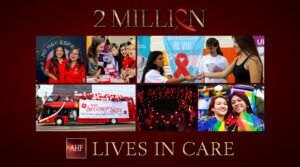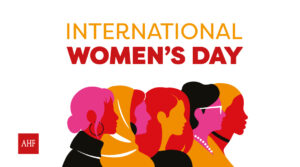Today, the fight against HIV and AIDS has advanced significantly in terms of research and medical advances. However, positive people still face numerous challenges, such as stigma and discrimination. Every day, life offers us multiple lessons and experiences. Not all of them are easy, and some can be overwhelming. If you are living with HIV, you have surely faced significant challenges and learnings, but did you know that sharing your experiences can have a powerful impact on your life and the lives of others in a similar situation? Here are some of the benefits of talking to other people living with HIV.
Shared learning: Unity is strength
There is nothing like learning first hand, and who better to share those experiences than someone who understands what you are going through. Sharing our experiences allows us to better understand the situations and challenges we face, as well as being an invaluable source of advice and solutions to common problems.
Beyond emotional support: Weaving networks of solidarity
It is not only about sharing experiences and learning, talking with other people living with HIV can be an incomparable source of emotional support. Feeling that we are not alone on our own, that there are more people in similar situations, can be comforting and give a strong sense of belonging. Furthermore, the empathy and affection that arise from these conversations can lead us to form networks of solidarity and mutual support that accompany us along the way.
Reducing stigma
Discrimination against people living with HIV continues to be a reality in many Latin American countries. Fear of rejection and discrimination can lead to isolation and conceal the diagnosis, which in turn can have a negative impact on people’s health and well-being. However, talking openly about HIV with those who are also living with it helps to challenge and dismantle the negative stereotypes associated with the experience of living with HIV.
Peer contact can be a powerful tool to educate society and promote understanding. By sharing their stories and challenging bias, people living with HIV can help change attitudes and perceptions in the wider community. In addition, by coming together and advocating together, they can influence to promote inclusive policies and programs.
Looking ahead: Building a vision of the future
Finally, talking to other people living with HIV allows us to look forward. Observing those who have gone through similar situations and have managed to overcome obstacles can give us the confidence and optimism we need to face our own path. Through their stories, they can become references that inspire us and show us that, despite the challenges, it is possible to live a full and meaningful life.
Frequent questions:
Where can I find support groups for people living with HIV?
There are several community organizations and health clinics that offer support groups for people living with HIV. You can check with your doctor, local health center or search the internet.
How can I start a conversation about HIV with other people?
It may seem intimidating at first, but remember that honesty and openness are key. You can start by sharing your own experiences or by asking if the other person is willing to talk about it. Remember not to force anyone to share if they don’t feel comfortable doing so.
What do I do if I can’t find support groups in my area?
Consider seeking support online. There are numerous communities, forums and social media groups where you can connect with other people who are also living with HIV.
Conclusion
Coping with life with HIV can be a journey full of challenges, but also opportunities to grow, learn and connect with other people. Sharing experiences can be a powerful light on our journey. It supports us, strengthens a sense of belonging, and provides us with examples of resilience and hope. This type of interaction shows us that, although each experience is unique, we are not alone in this and it is possible to continue building a future full of possibilities and full experiences.
At AHF Latin America and the Caribbean we can also provide you with information and connect you with other networks. If you have any questions, come to any of our offices in your country or consult our networks.






